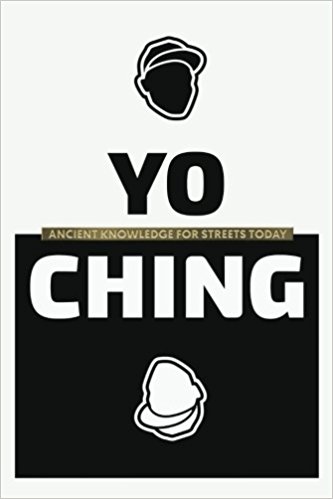
The I Ching has been one of my favorite divination systems for decades. One day in college, I was browsing a bookstore and found the Richard Wilhelm edition of the I Ching, saw that Carl Jung had written the introduction, and bought it. That introduction, written in 1949, was where I learned about synchronicity. I’ve been using the Ching ever since.
The I Ching is a 5,000 year old oracle based on 64 hexagrams that are obtained by the tossing of 3 coins 6 times. Heads equal 3, tails are 2. If you get a 6, the broken line is changing to a solid line. If you get a 9, the solid line is changing to a broken line. When a hexagram has changing lines, it means you will end up with a second hexagram because the situation is in flux.
Over the years, I’ve tried various I Ching apps and have gotten to know other people who use the I Ching. One of them is artist and writer Adele Aldridge, who has undertaken a huge project – illustrating and interpreting every hexagram and every possible combination of changing lines.
Several days ago, I received an email from a man named Hugh Gallagher, who has produced an app and book called Yo Ching, Ancient Knowledge for Streets Today. The interpretation of the hexagrams comes from True Player, an expat from the Bronx who Gallagher met at The Cosmos, a bar in Bangkok that became famous during the Vietnam War as a watering hole for CIA agents. Over a period of time, he and True Player got around to talking about a myriad of subjects, including the I Ching. “I was intrigued,” Gallagher writes. “Player’s profound and casual take on the I Ching – which he called Yo Ching – was totally profane and utterly wise.”
Gallagher was impressed, so for the next two years, he and True Player met at The Cosmos (appropriate name) and True Player would talk and Gallagher transcribed. Gallagher eventually moved back to the U.S. and started putting his notes together. In some ways, his relationship with True Player reminds me of Carlos Castaneda’s relationship with Don Juan – at once mysterious, numinous, creative.
In 2015, the Yo Ching book was published and now there’s also a free app. Rob and I have been experimenting with the app and find it to be quite accurate. Keep in mind that the interpretations are written in “street language,” so they’re laced with profanities, but the wisdom reflects that of the I Ching.
The only thing the app lacks is changing lines. I asked Hugh about it and he said changing lines will be added at a later time. The book, however, gives interpretations for changing lines as well.
Check out Hugh’s site and give the app a try. It’s fun, a different take on an old divination system.
Hugh is quite an accomplished writer, an ex-pat who is now living and working in Thailand. Here’s a piece he wrote for Newsweek.








I checked out the names he gives the hexagrams – loved them!
p.s. We can’t have too many I Chings.